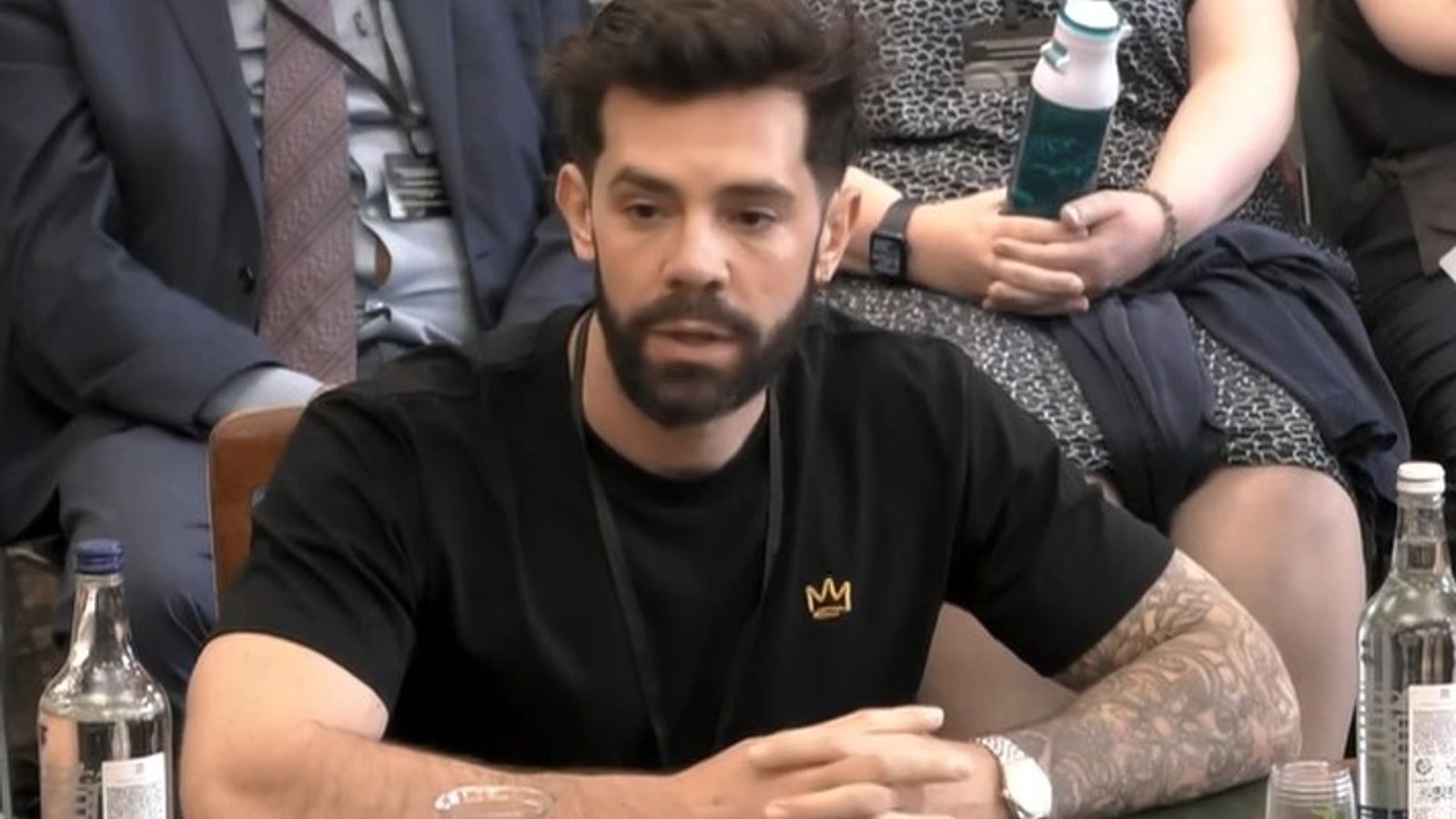A reality star has called for more mental health support for people who have cosmetic procedures as he described going to the “depths of despair” after his nose surgery went wrong.
The Only Way is Essex star Charlie King described how his career was “floored” after his cosmetic surgery did not go as planned.
The 36-year-old star appeared before MPs on the Health and Social Care Committee to share his experience with body dysmorphic disorder.
He said he became “obsessed” with his nose during lockdown and booked in for surgery which “went wrong”.
He believes he may not even have had the surgery if there was better mental health support for people having cosmetic procedures.
He told MPs he was bullied in school and also “struggled with his sexuality for years”.
“I’d spent many years through my teens and 20s with an internal turmoil and a struggle with my own identity, so that was quite challenging.
“One of the things that I could control was my image.”
His appearance came following research carried out by the committee that suggested four in five people (80%) who took part in an online poll believe body image has an impact on mental health.
Mental health minister Gillian Keegan said: “Poor body image can and will affect most of us at some point in our life.
“And it is a risk factor for mental health problems.”
After his appearance, Mr King told the Sky News Daily podcast he did not think he was “necessarily meant to be a reality TV star,” but that he was “meant to have some form of public profile to share this journey”.
He said The Only Way Is Essex was the first of its type in the scripted reality genre. “It was Instagram before Instagram was even really a thing, but it was definitely a way of portraying a certain lifestyle, a certain aesthetic…
“Then obviously it morphed into social media and a social media following, and then this whole need to show yourself in a certain light, whether it’s, you know, six pack bodies or enhanced lips and extensions on the hair or whatever it is, it just became this whole thing.
“And if you weren’t fitting into that or you were around it on the day like I was, you can’t help but almost get sucked into it because you feel like that’s what you need to be, because they were the guys that were getting all the jobs.
“They seemed to be the one that were getting the big followings and the campaigns. And then you start thinking, ‘right, I need to up the ante here, I need to play ball’.”
He told the podcast he did not realise, at first, that he had body dysmorphia but he knew he felt “inadequate”.
‘I’m ugly’
He said he had been bullied growing up at his all-boys school and during the COVID pandemic lockdown suppressed emotions ran high.
“I spent so much time on the phone looking at social media. And then the thing that started really coming into the forefront of my mind was that I’m ugly. I feel so ugly, I don’t want to post anything.
“And I became obsessive about it. And that’s unfortunately part of the condition of the OCD (obsessive compulsive disorder) and it’s part of my nature, which I hate now.
“I don’t know why I’m always in need of validation, but… I want to try and stress to people and the ministers and people of authorities that this is a mental health condition. This stems from anxiety. This is a change in chemicals within the brain.
“This is something that is far more than actually just the appearance. And there needs to be more duty of care around it.”
He told the committee he went to see a plastic surgeon about altering his nose which had been broken as a child. The surgeon agreed to do the work and told him “we can improve that”.
But it did not go to plan and while waiting for a second surgery he was sent into the “depths of despair”.
Ms Gillian Keegan added: “Eating disorders in particular is something that we’ve seen a massive increase in demand for, particularly with young people.
“One of the things that we’ll be focused on doing is trying to expand services as quickly as we can to meet the needs, because we know we’re not meeting all of the demand.
She added: “As a society we have changed quite a lot in terms of how we talk about mental health, how social media impacts our mental health and what we need to do about that.
“Being much more open about our mental health (has led to) to an explosion in demand. And we’re really running to try to keep up with that capacity.”

